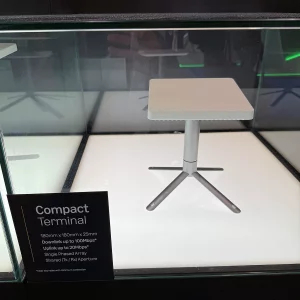Sponsored Links
BT Shuns Faster Broadband Speeds - Again..
Posted: 05th Jun, 2007 By: MarkJ
BT Wholesale's director of product management, Angus Flett, has claimed that consumers don't want faster broadband services and that they wont deliver it:
Flett's comments are obviously designed to play down the fact that they're not putting much effort into broadband beyond ADSL2+ or VDSL2. On the other hand there's not a lot of point in building 100Mbps networks if bandwidth can't keep up and consumers only ever connect with a far lower speed.
Likewise other countries, such as South Korea, have largely built their modern networks through vast public funding, something that is rather difficult to do in the EU. People may point to Sweden, but some of those we know on allegedly 100Mbps products barely receive 2Mbps.
Never the less, future broadband services shouldnt be sidelined as at the very least they reference a serious need to improve broadband speeds for everybody, not just those living closest to the exchange. As a country we can not afford to fall behind. More @ The Register.
The firm, which announced record profits last month, is maintaining its party line on fibre to the home, that it is a "UK PLC issue", rather than a matter for the national telecoms network owner alone. Instead, it will push broadband as an "application driven" service, which it reckons will help it compete with rivals who have unbundled the local loop (LLU) in exchanges to give them cheaper access.
Angus Flett, BT Wholesale's director of product management, said: "I think the speed wars didn't provide value for customers...[they] don't give two hoots about speed."
Critics have charged that BT is under-investing compared to telcos in South Korea and on the continent, who are rolling out fibre optics to the home, offering up to 100Mbit/s access. BT denies the claims, but has published no plans to offer beyond 24Mbit/s ADSL2+ over its new 21CN backbone. Flett said: "If you do VDSL2 [a technology which offers up to 100Mbit/s without upgrading the 'last mile' copper wire], then you have to do fibre to the cabinet, and if you do that then the economics mean you might as well do fibre to the home."
Angus Flett, BT Wholesale's director of product management, said: "I think the speed wars didn't provide value for customers...[they] don't give two hoots about speed."
Critics have charged that BT is under-investing compared to telcos in South Korea and on the continent, who are rolling out fibre optics to the home, offering up to 100Mbit/s access. BT denies the claims, but has published no plans to offer beyond 24Mbit/s ADSL2+ over its new 21CN backbone. Flett said: "If you do VDSL2 [a technology which offers up to 100Mbit/s without upgrading the 'last mile' copper wire], then you have to do fibre to the cabinet, and if you do that then the economics mean you might as well do fibre to the home."
Flett's comments are obviously designed to play down the fact that they're not putting much effort into broadband beyond ADSL2+ or VDSL2. On the other hand there's not a lot of point in building 100Mbps networks if bandwidth can't keep up and consumers only ever connect with a far lower speed.
Likewise other countries, such as South Korea, have largely built their modern networks through vast public funding, something that is rather difficult to do in the EU. People may point to Sweden, but some of those we know on allegedly 100Mbps products barely receive 2Mbps.
Never the less, future broadband services shouldnt be sidelined as at the very least they reference a serious need to improve broadband speeds for everybody, not just those living closest to the exchange. As a country we can not afford to fall behind. More @ The Register.
Search ISP News
Search ISP Listings
Search ISP Reviews
Latest UK ISP News








Cheap BIG ISPs for 100Mbps+
150,000+ Customers | View More ISPs
Cheapest ISPs for 100Mbps+
Modest Availability | View More ISPs
Latest UK ISP News
Helpful ISP Guides and Tips
Sponsored Links
The Top 15 Category Tags
- FTTP (6722)
- BT (3863)
- Politics (3037)
- Business (2736)
- Openreach (2629)
- Building Digital UK (2488)
- Mobile Broadband (2435)
- FTTC (2132)
- Statistics (2103)
- 4G (2063)
- Virgin Media (1997)
- Ofcom Regulation (1761)
- 5G (1693)
- Fibre Optic (1587)
- Wireless Internet (1581)
Sponsored
Copyright © 1999 to Present - ISPreview.co.uk - All Rights Reserved - Terms , Privacy and Cookie Policy , Links , Website Rules































